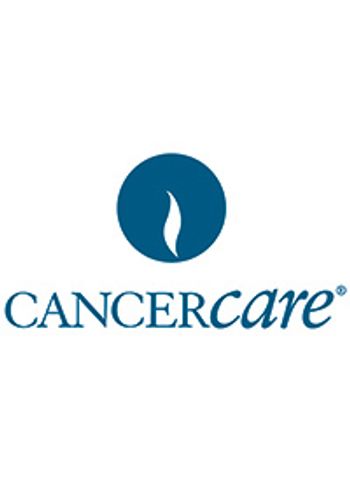
A team of researchers at the University of Pittsburgh School of Nursing set out to better understand the interpersonal communication components of breast cancer navigation services.

A team of researchers at the University of Pittsburgh School of Nursing set out to better understand the interpersonal communication components of breast cancer navigation services.

A study published in the journal Plastic and Reconstructive Surgery described a surgical procedure called prepectoral breast reconstruction that was used among patients who had mastectomies and radiation therapy following their breast cancer diagnosis.

The optimal duration of treatment for patients with HER2-positive breast cancer has been called into question by recent findings from the NSABP B-52, PERSEPHONE, and APT clinical trials.

The Food and Drug Administration (FDA) granted a priority review to atezolizumab (Tecentriq) in combination with nab-paclitaxel (Abraxane) for frontline use in patients with unresectable locally advanced or metastatic triple-negative breast cancer (TNBC) whose disease expresses the PD-L1 protein.

There is an increasing need for board-certified genetic counselors in the United States, says Stephanie A. Cohen, MS, LCGC, and she is looking to nurses to help improve patient access to hereditary cancer risk assessment and genetic testing.

An 11-year study showed that patients with nonmetastatic breast cancer who learned to manage their stress with cognitive behavioral interventions had less depression and a better quality of life.

Low NR2F1 expression in disseminated tumor cells (DTCs) that is found in bone marrow may be indicative of developing metastatic breast cancer, according to results of a study published in Breast Cancer Research.

Elderly women living in nursing homes who were diagnosed with breast cancer may face a greater chance of death compared with their non-resident peers–despite what, for many in other age groups, is routine surgery. Therefore, the decision to perform breast cancer surgery must lie with the patient, family, and her physician.

Tiki Barber, former NFL running back and radio host, explains how he feels about oncology nurses, who helped his mother through her breast cancer experience.

This article reviews the types of genes included in multigene panels for breast cancer, and the risks associated with those genes.

The FDA has approved talazoparib (Talzenna) for patients with deleterious or suspected deleterious germline BRCA-mutated, HER2-negative locally advanced or metastatic breast cancer, according to Pfizer, the manufacturer of the PARP inhibitor.

Though having well-fitting wigs and prostheses may seem like secondary concerns to some, providing these items—and a safe environment within which to learn about them—can go a long way in helping a patient feel supported and positive about their appearance while they are receiving treatment.

In an effort to help individuals gain access to breast health services, Barbells for Boobs and CancerCare®, the leading national cancer support organization, have officially launched the NYC Support Line.

As oncology nurses, we are uniquely positioned to proactively address the disparity in breast cancer mortality in the United States.

Nurses share the latest procedures in postmastectomy reconstruction and how to support women in recovery.

The Better Business Bureau (BBB) is warning consumers to make informed decisions about donating to breast cancer charities that businesses claim to be supporting during Breast Cancer Awareness Month.

Combining alpelisib (BYL719) with fulvestrant (Faslodex) improved progression-free survival versus fulvestrant alone in postmenopausal women and men with hormone receptor (HR)-positive, HER2-negative, PIK3CA-mutant advanced or metastatic breast cancer that progressed after aromatase inhibitor treatment with or without a CDK4/6 inhibitor.

Findings from the MONALEESA-3 trial dispelled the theory that a CDK4/6 inhibitor had to be reserved following recurrence on hormone therapy in postmenopausal patients with hormone receptor (HR)-positive, HER2-negative breast cancer, explained Dennis J. Slamon, MD, PhD.

Women aged 65 and older undergoing chemotherapy for breast cancer have a higher risk of experiencing a decline in their ability to function physically, according to a new study published in the Journal of the American Geriatrics Society.

Banu K. Arun, MD, discussed the challenge of treating patients with triple-negative breast cancer, the value of genotyping, and what she hopes to see in future trial results.

Over the last few years, treatments for patients with metastatic hormone receptor (HR)-positive breast cancer have evolved rapidly. As changes in care continue to progress, nurses need to understand these treatment options, and where the research may take the field in the future.

As abemaciclib (Verzenio) has emerged as a promising agent for patients with hormone receptor (HR)-positive, HER2-negative metastatic breast cancer, the oncology nurse is now a key factor for these patients, according to Paula Fulgham, RN, OCN.

The favored use of immune checkpoint inhibitors in oncology has led to an increase in immune-related adverse events (IRAEs), which if not managed properly, can be life-threatening.

The FDA has approved the Magtrace and Sentimag Magnetic Localization System to identify and remove sentinel lymph nodes in women undergoing mastectomy for breast cancer.

The FDA has granted a priority review to antibody-drug conjugate sacituzumab govitecan for the treatment of patients with metastatic triple-negative breast cancer following at least 2 prior therapies for metastatic disease.